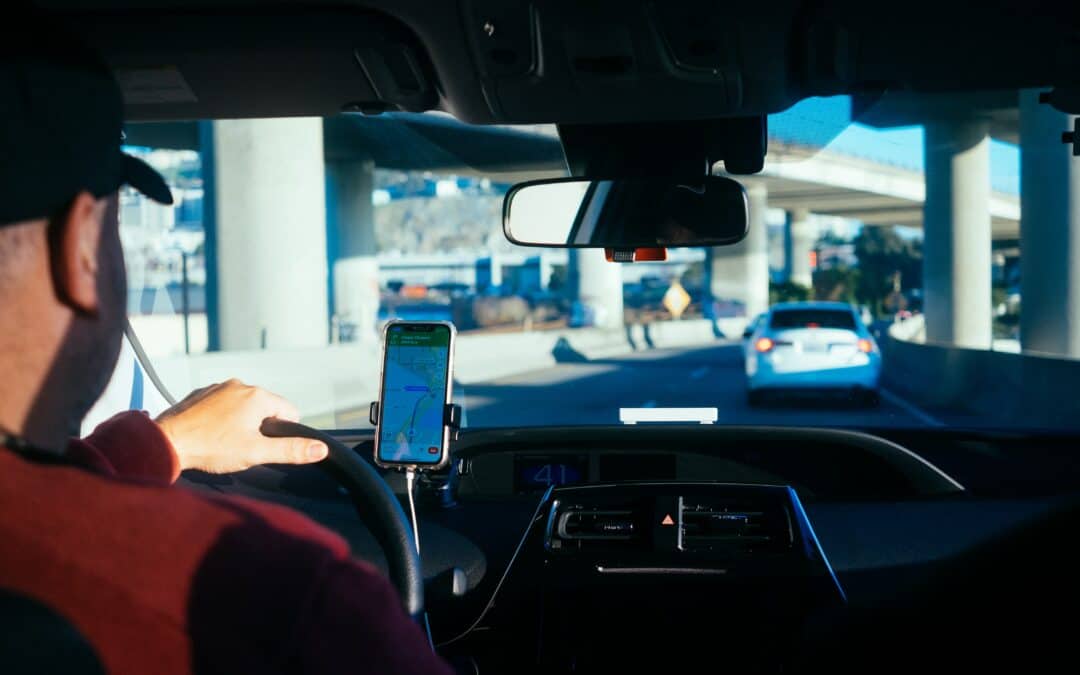This post contains affiliate links.
In 2009, Uber was founded and has since been the number one choice for anyone wishing to commute around quickly without driving themselves or hailing a taxi. Uber is now available in over 70 countries and 10 500 cities, but how does Uber calculate fares?
The way Uber calculates fares is subject to the traffic you will experience (which factors into the length of the trip), the hour in which you wish to order an Uber, and how far the trip is. Depending on the city you are in, the price may be determined beforehand or calculated after the ride.
The price of a ride with Uber is mainly subject to change based on a large selection of variables. Therefore, understanding what determines the pricing of an Uber ride is essential to know when deciding whether to order a ride with Uber and whether it is the best value-for-money option available.
How Does Uber Calculate Fares for Trips?
Firstly, it is essential to acknowledge that the fares on the Uber app when one wishes to order an Uber ride are subject to change. For example, if there is an accident or an incident where the Uber driver (with your permission) has to take another route. If this route takes longer and increases the trip's distance, the price will likely increase after the trip.
This difference means that the Uber fare that shows up before one chooses to order an Uber ride is not always the price that ends up getting charged to you. Even when the city you're in allows upfront fares to get charged rather than post-trip fares, if the trip is much longer than expected or you wish to make stops along the way, the price is likely to increase after the trip.
When the estimated upfront prices are calculated by Uber, the factors it always includes are:
- A base rate for the trip.
- Fares are calculated using the estimated duration and distance of the said trip.
- The demand for Uber rides in the area from where you wish to order an Uber.
- The price will include a booking fee and surcharge fees (such as tolls etc.).
When post-trip fares are calculated, the factors it always includes are:
- Demand for ordering an Uber ride in the area at the time. (Higher demand means you will get charged more than usual).
- The time it took to reach your destination and the distance the Uber vehicle travelled during the trip.
- A base rate for the trip, a booking fee, and extra charges such as tolls or additional stops.
- The fares may also depend on the location of your trip and the vehicle or quality of the ride you chose. (Some cities offer ‘premium' versions of trips where you will be driven in a higher-class car and get additional treatment during the ride, as well as ‘budget' versions of trips where you might have to share the Uber trip with someone else and you share the price.)
Does Uber Charge More For Unexpected Longer Trips?
When the Uber fare gets calculated before the ride but increased at the end of the trip due to a more extended trip or stops along the way, the receipt that gets digitally sent to the passenger will explain why the Uber fare has increased. If one's Uber fare has increased at the end of the trip despite the trip taking the estimated original time and no stops getting made along the way (so essentially, you get accidentally charged extra), you can appeal.
Even if the cost of a trip is calculated after the trip, if the trip took no longer than it should have and the route remained the same throughout the trip as it did before you ordered the Uber, but you got charged extra, you can appeal to Uber.
One can appeal to either the Uber website or Uber's mobile app. Once an appeal gets made and Uber deems your complaint worthy, Uber will investigate it. The data of the trip is then looked through to see if any alternate routes got taken or the trip took longer than planned (or any other reasons like extra stops).
If Uber find that they have overcharged you, they will issue you a refund or a voucher to get used in the future for the same amount you overpaid. However, keep in mind that not every complaint to Uber gets deemed worthy, so appealing does not necessarily mean Uber will refund you.
How Much is Uber CHarging Per Mile?
A person who orders an Uber will pay more or less depending on the time and their quality of experience. Unexpected longer trips and separate charges will also get added to the final price of the trip.
Although, the general amount of money that one will pay per mile is around $1 to $2. Often for shorter Uber rides, one will find in the breakdown of the fees for the trip that the cost-per-mile is less than $1. This fee is for the ‘cheaper’ version of an Uber ride called UberX.
What Causes A Surcharge In Uber Fares?
- A waiting-time fee: After an Uber driver has waited for their passenger for more than 2 minutes (here's the cost of a 20-minute uber). Uber will add a waiting-per-minute fee to the final charge. This charge is around $0.40 per minute.
- Cancellation fee: If a person has ordered an Uber ride but decided to no longer make the trip, they will get charged by Uber for cancelling. This fee is generally around $5 but can reach up to $10 for SUV and UberBlack.
- Cleaning fee: Riders get charged if they cause any mess that will require the Uber driver to pay money to clean. This mess includes vomiting, spilling food, bleeding etc. These fares are calculated based on how bad the mess is and how much it will cost the driver to get cleaned.
Conclusion
Many different variables come into play when the fares of a trip are calculated by Uber. The price is estimated initially before the trip to show customers how much they are likely to pay if they order an Uber ride at that time. This estimated price gets based on the distance of the trip, the estimated time it will take to get completed, and the demand for trips in that area.
If the Uber trip takes much longer than expected or the Uber driver gets forced to take another route, the customer's overall cost at the end of the ride is likely to be higher than the estimated cost at the beginning of the trip. Uber ride share drivers get paid roughly 70% of the money they earn in total for their driving.


